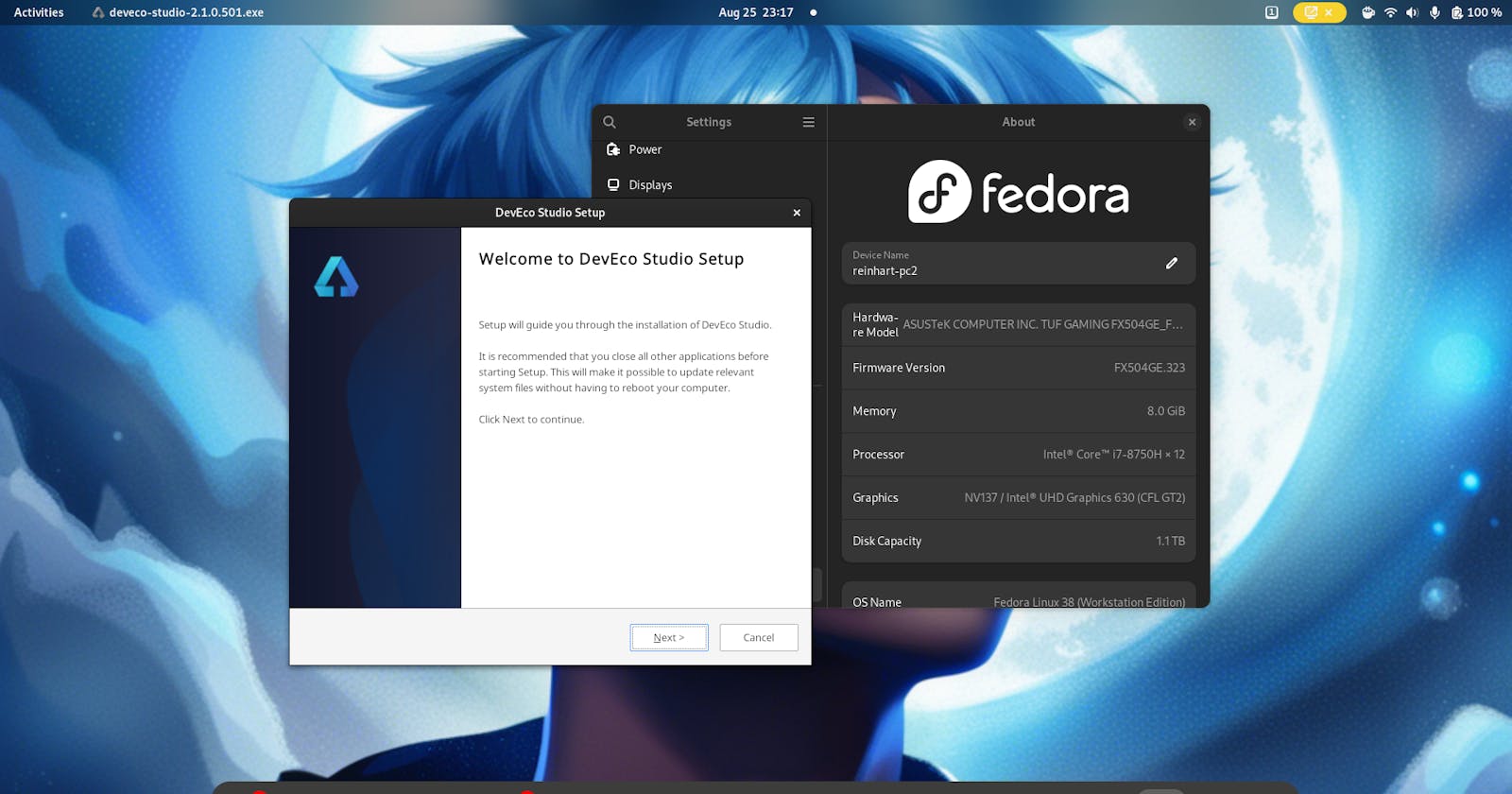DevEco Studio is the official IDE for HUAWEI's HarmonyOS platform. And it's only available for Windows and macOS. Or is it?
Considering that the Linux desktop (like Kylin and others) is increasingly important in Mainland China to reduce their dependence on third-party operating systems from foreign companies (including Windows and macOS), there should be many aspiring HarmonyOS developers who want to build apps using this IDE, but on Linux. After all, HarmonyOS was built to reduce HUAWEI's dependence on Android, which is also primarily developed by foreign companies with many closed-source/proprietary components.
Of course, there are several workarounds to make HarmonyOS apps on Linux, like on this Chinese Zhihu blog post which require you to manually install command-line tools as well as using Visual Studio Code in place of DevEco Studio.
Oh yeah, I’m running Fedora, which means that I cannot install the official Linux version of DevEco Command Line Tools, which is simply a huge shell script requiring you to have apt installed on your system. Fedora doesn’t include that tool.
And cases like this could be frustrating for some app developers and teachers to learn HarmonyOS app development together who are already familiar with DevEco Studio way (or should I say, the JetBrains way) of doing things. DevEco Studio have a similar look and feel to Android Studio because, well, they are both based on JetBrains' IntellIJ IDEA software.
The installer completed successfully, at least.
So I decided to check out DevEco Studio for Windows on my Linux device using WINE, and shout out to JetBrains and WINE team because DevEco Studio can be installed on Linux! If you are already familiar with Wine AppDB review process, the very first thing to look when testing Windows apps is to check whether the software can be installed successfully.
However, there's a caveat here. As of time of this writing I still cannot download additional tools to develop HarmonyOS apps using Java and JS/eTS/ArkTS due to an internal error, possibly related to Huawei's web service infrastructure. I also couldn't download the necessary files for simulator because of the same issue.
So that might be covered in Part 2, and that's why I decided to not submit my reviews to AppDB yet.
The installation process.

Running the DevEco Studio installer. That works.
The installation process is straightforward. But for those who are just starting their fresh, new Wine install/profile, you will need to install the Windows version of Node.js (latest LTS is highly recommended) as well as Git.
Additionally, you will need to use a 64-bit WINE profile, aka. the Wineprefix. WINE, PlayOnLinux, and PlayOnMac usually recommends using 32-bit ones, but DevEco Studio requires a 64-bit machine.
Next, ensure that your Windows version, is set to Windows 10. You can view and change your current (emulated) Windows version by going to Wine Configuration (winecfg).
Note that I am using Wine version 8.12 on Fedora 38, and before installing DevEco Studio, I also have set the following library overrides to support other apps/programs:
*mscoree (native)
*mscorwks (native)
msftedit (native, builtin)
msxml (native, builtin)
netapi32 (native, builtin)
riched20 (native, builtin)
riched30 (native, builtin)
richtx32 (native, builtin)
vb6run (native, builtin)
I know that some of there are very likely unrelated with DevEco Studio, such as riched20 and riched30 which are used in Microsoft Office. But I still do not have available time to check which library overrides that are required by DevEco Studio, so if you ran into additional problems when starting it, you may need to add some of these library overrides to your Wine Configuration.
Aside from the network issue, I can still create, open, and modify projects inside the IDE. Here are some screenshots:

Oh, yeah, the DevEco Studio banner blocks the window. That should be reported as a bug 🐞…

…which is very annoying.

The network error I mentioned (could not find download URL)…

…and the detailed info (see the Build log).

Network shouldn’t be an issue because I can still browse the IntellIJ plugins catalog.
What’s next?
Well, that’s quite unfortunate that you can’t download the emulators and other necessary tools, which happens to be an Apache Tomcat HTTP timeout error that even I do not know how to fix (of course, by increasing the timeout duration, but where to apply that inside WINE or DevEco Studio?)
So I decided to submit a Bronze rating on AppDB. Hopefully my review will be approved first.
